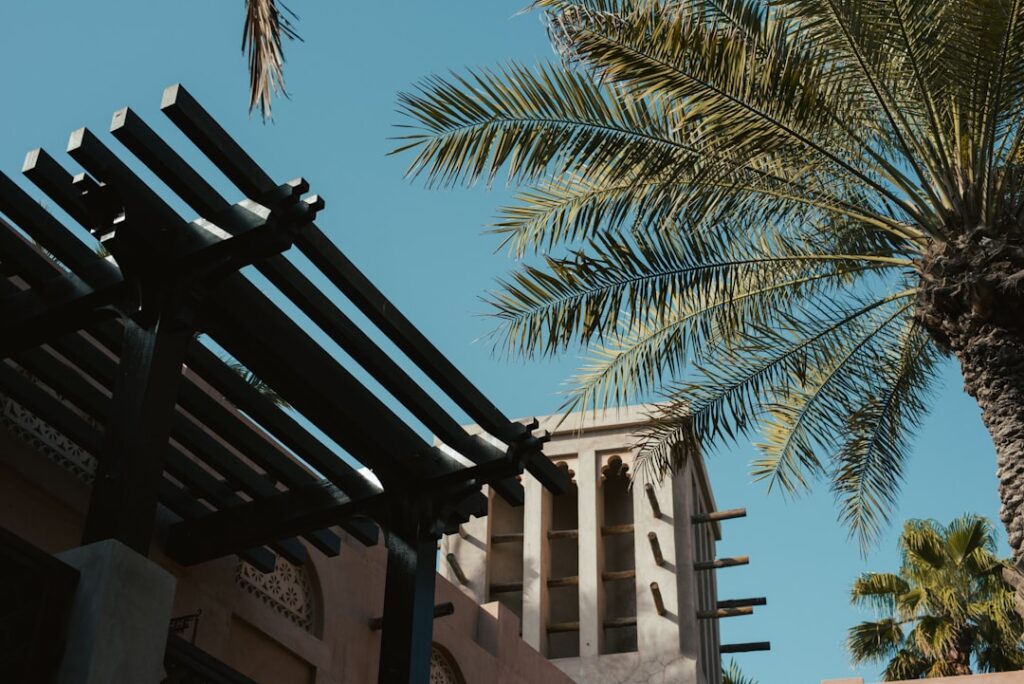Dubai has emerged as a global hub for business, tourism, and luxury living, making it an attractive destination for property investment. The city’s skyline is adorned with iconic structures such as the Burj Khalifa and the Palm Jumeirah, symbolizing its rapid development and modernity. Investors from around the world are drawn to Dubai not only for its stunning architecture but also for its strategic location, which serves as a gateway between Europe, Asia, and Africa.
The allure of Dubai’s real estate market lies in its potential for high returns, tax-free income, and a lifestyle that combines luxury with cultural diversity. The property market in Dubai has undergone significant transformations over the past few decades. With a robust economy driven by tourism, trade, and finance, the demand for residential and commercial properties has surged.
The government has implemented various initiatives to attract foreign investment, including long-term visas for property owners and a transparent regulatory framework. As a result, Dubai has become a magnet for investors seeking to capitalize on the city’s growth trajectory. This article delves into the intricacies of investing in Dubai’s property market, exploring its growth, advantages, legal considerations, and potential risks.
Key Takeaways
- Dubai offers a lucrative opportunity for property investment due to its growing real estate market and stable economy.
- The Dubai real estate market has shown consistent growth and stability, making it an attractive option for long-term investment.
- Long-term investment in Dubai property offers advantages such as rental income, capital appreciation, and potential residency benefits.
- Before investing in Dubai property, factors such as location, developer reputation, and market trends should be carefully considered.
- Various types of properties, including apartments, villas, and commercial spaces, are available for long-term investment in Dubai, catering to different investor preferences.
Growth and Stability of Dubai Real Estate Market
The growth of the Dubai real estate market can be attributed to several key factors. First and foremost is the city’s strategic economic diversification efforts. Historically reliant on oil revenues, Dubai has successfully transitioned into a service-oriented economy, with sectors such as tourism, aviation, and technology playing pivotal roles.
This diversification has not only stabilized the economy but has also created a robust demand for real estate across various segments. According to reports from the Dubai Land Department, property transactions in 2022 reached record highs, indicating a strong recovery post-pandemic and sustained investor confidence. Moreover, the stability of the Dubai real estate market is bolstered by government initiatives aimed at enhancing transparency and investor protection.
The introduction of the Real Estate Regulatory Agency (RERA) has established clear guidelines for property transactions, ensuring that investors are safeguarded against fraud and misrepresentation. Additionally, the implementation of the Dubai 2040 Urban Master Plan aims to enhance livability and sustainability in the city, further solidifying its appeal as a long-term investment destination. The combination of economic resilience and proactive governance creates a favorable environment for property investors looking to capitalize on Dubai’s growth.
Advantages of Long-Term Investment in Dubai Property
Investing in Dubai property offers numerous advantages that make it an attractive option for long-term investors. One of the most significant benefits is the potential for capital appreciation. Over the years, property values in Dubai have shown a consistent upward trend, driven by increasing demand and limited supply in prime locations.
Investors who purchase properties in sought-after areas can expect substantial returns on their investments as the market continues to grow. For instance, areas like Downtown Dubai and Dubai Marina have historically seen significant price increases due to their proximity to key attractions and amenities. Another compelling advantage is the rental yield that Dubai properties can generate. The city boasts one of the highest rental yields globally, often exceeding 7% annually in certain neighborhoods. This is particularly appealing for investors seeking passive income streams.
The influx of expatriates and tourists contributes to a strong rental market, with many individuals opting to rent rather than buy due to the transient nature of their stay in the city. Furthermore, the absence of property taxes enhances the overall profitability of rental investments, allowing investors to retain more of their earnings.
Factors to Consider Before Investing in Dubai Property
Before diving into the Dubai property market, potential investors must consider several critical factors that can influence their investment decisions. One of the foremost considerations is location. The desirability of a property’s location can significantly impact its value and rental potential.
Areas close to major business districts, shopping centers, and transportation hubs tend to attract higher demand. For example, properties in neighborhoods like Jumeirah Beach Residence (JBR) or Business Bay are often more sought after due to their proximity to amenities and lifestyle offerings. Another essential factor is understanding the market dynamics and trends.
Investors should conduct thorough research on current market conditions, including supply and demand trends, price fluctuations, and upcoming developments in the area. Engaging with local real estate experts or consultants can provide valuable insights into emerging neighborhoods or projects that may offer lucrative investment opportunities. Additionally, understanding the demographic trends in Dubai can help investors identify target markets for their properties, whether they are catering to families, young professionals, or retirees.
Types of Properties Available for Long-Term Investment in Dubai
Dubai’s real estate market offers a diverse range of property types suitable for long-term investment. Residential properties are among the most popular choices for investors looking to generate rental income or capitalize on capital appreciation. These include apartments, villas, townhouses, and luxury residences.
High-rise apartments in areas like Dubai Marina or Downtown Dubai are particularly appealing due to their stunning views and proximity to entertainment options. In addition to residential properties, commercial real estate presents another lucrative investment avenue. Office spaces in business districts such as DIFC (Dubai International Financial Centre) or JLT (Jumeirah Lake Towers) are in high demand as companies seek modern facilities to accommodate their workforce.
Retail spaces in popular shopping destinations also offer attractive returns, especially with the resurgence of tourism post-pandemic. Furthermore, mixed-use developments that combine residential, commercial, and retail spaces are gaining traction as they provide investors with diversified income streams.
Legal and Regulatory Framework for Property Investment in Dubai
Understanding the legal and regulatory framework governing property investment in Dubai is crucial for any prospective investor. The UAE has established a comprehensive set of laws that protect both buyers and sellers in real estate transactions. The Real Estate Regulatory Agency (RERA) plays a pivotal role in overseeing property transactions and ensuring compliance with regulations.
Investors must familiarize themselves with RERA’s guidelines regarding property registration, ownership rights, and dispute resolution mechanisms. One notable aspect of property ownership in Dubai is the distinction between freehold and leasehold properties. Freehold properties allow foreign investors to own land outright in designated areas, while leasehold properties grant ownership rights for a specified period (typically 99 years).
Understanding these distinctions is vital for investors as it impacts their long-term investment strategy. Additionally, obtaining necessary permits and approvals from relevant authorities is essential before proceeding with any property transaction.
Risks and Challenges of Long-Term Property Investment in Dubai
While investing in Dubai’s real estate market presents numerous opportunities, it is not without its risks and challenges. One significant risk is market volatility; property values can fluctuate based on economic conditions, geopolitical factors, or changes in government policies. Investors must be prepared for potential downturns and have contingency plans in place to mitigate losses during challenging times.
Another challenge is navigating the complexities of property management and maintenance. For investors who choose to rent out their properties, ensuring consistent occupancy rates can be demanding. Factors such as seasonal fluctuations in tourism or changes in tenant preferences can impact rental income stability.
Additionally, managing property maintenance and dealing with tenant issues require time and resources that some investors may not be equipped to handle effectively.
Tips for Successful Long-Term Property Investment in Dubai
To maximize success in long-term property investment in Dubai, several strategies can be employed by prospective investors. First and foremost is conducting thorough due diligence before making any investment decisions. This includes researching market trends, analyzing comparable properties, and understanding local regulations that may affect ownership or rental potential.
Building relationships with reputable real estate agents or consultants can also provide valuable insights into emerging opportunities within the market. These professionals often have access to off-market listings or upcoming developments that may not be widely advertised yet. Additionally, networking within local investor communities can offer support and knowledge-sharing among like-minded individuals.
Investors should also consider diversifying their portfolios by exploring different types of properties or locations within Dubai. This approach can help mitigate risks associated with market fluctuations while maximizing potential returns across various segments of the real estate market. Finally, staying informed about economic developments and government initiatives that may impact the real estate landscape is crucial for long-term success.
By remaining proactive and adaptable to changing market conditions, investors can position themselves strategically within Dubai’s dynamic property market.
If you are considering Dubai property as a long-term investment, you may also be interested in reading about the top tips for selling your Dubai apartment. This article offers valuable insights and advice on how to maximize the value of your property when it comes time to sell. You can find more information on this topic by visiting this link.
FAQs
What is the current state of the Dubai property market?
The Dubai property market has seen a decline in prices in recent years, but there are signs of stabilization and recovery. The market is still considered attractive for long-term investment due to its strategic location and strong infrastructure.
What are the factors that make Dubai a good long-term investment for property?
Dubai’s strategic location as a business and tourism hub, strong infrastructure, tax-free environment, and government initiatives to attract foreign investment make it an attractive option for long-term property investment.
What are the potential risks of investing in Dubai property?
Some potential risks of investing in Dubai property include market volatility, oversupply in certain segments, and changes in government regulations. It’s important for investors to conduct thorough research and seek professional advice before making any investment decisions.
What are the popular areas for property investment in Dubai?
Popular areas for property investment in Dubai include Downtown Dubai, Dubai Marina, Palm Jumeirah, and Emirates Hills. These areas offer a mix of residential, commercial, and leisure facilities, making them attractive for long-term investment.
What are the legal requirements for foreigners to invest in Dubai property?
Foreigners can invest in Dubai property in designated freehold areas, and there are no restrictions on the number of properties they can own. However, it’s important for foreigners to understand the legal requirements and regulations related to property ownership in Dubai.




